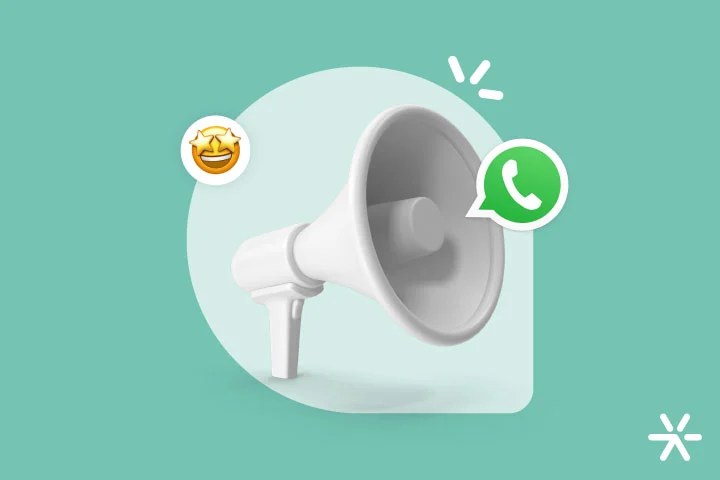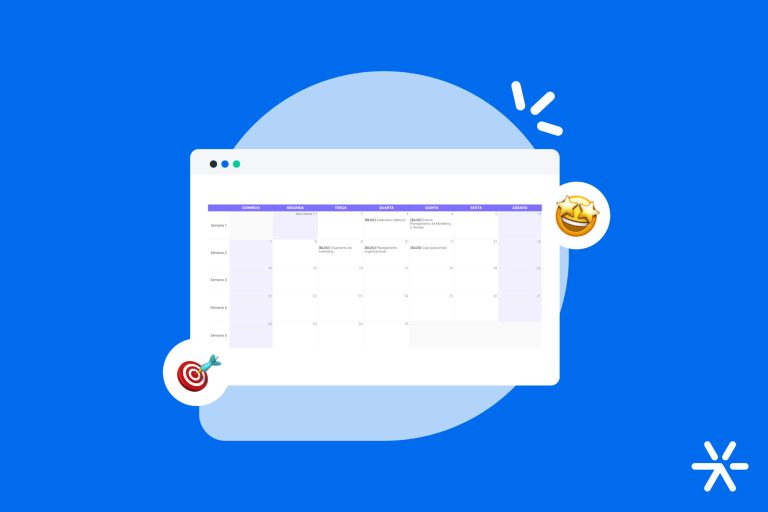The 19 Best Marketing Automation Tools Available Today
A marketing team is essential for any company, after all, there is no shortage of demands for this sector.
That said, imagine how much your workflow would improve with the implementation of automation software.
Marketing automation tools allow your team to focus time and attention on other revenue-generating efforts while the software handles time management, optimization, customer service, and facilitates other processes.
With that in mind, Leadster has compiled in this article the 19 Best Marketing Automation Tools in 2024—check it out!
What is a Marketing Automation Tool?

A marketing automation tool is software responsible for centralizing information and automating routines for sales and marketing processes.
Some of the tool’s functions include: automation flows, lead assignment, email marketing, database segmentation, lead generation and monitoring, A/B testing, and reports.
In addition, it consolidates data, sets automation rules, analyzes leads, encompasses content creation features, and integrates with other software.
Why Use Marketing Automation?
Besides the functions listed above, the key point for using marketing automation tools is to automate your processes, aiming to optimize work time and improve your company’s results.
Automation software will provide you with:
- Greater efficiency in the sales funnel;
- More effective sales;
- Better communication with customers;
- Lead nurturing;
- Cost reduction; and
- Preparing leads for purchase decisions.
19 Best Marketing Automation Tools in 2024

Now that you know what automation is, its function, and the importance of this software, let’s go over the 19 best marketing automation tools in 2024!
🔎 Check it out: Discover the Best Chatbots on the Market to Use in 2024
RD Station Marketing, the Best Combination for Your Strategy
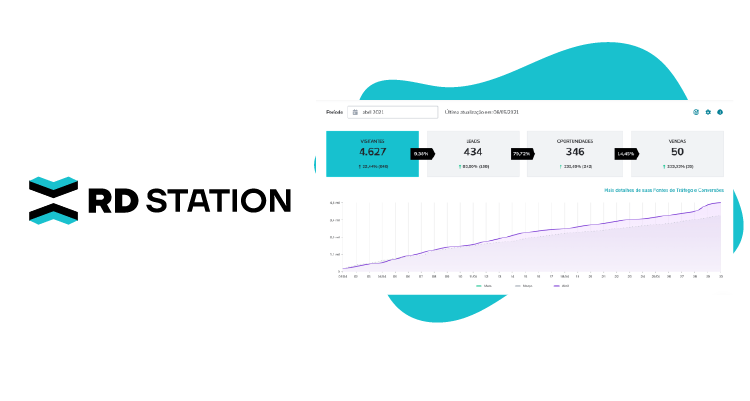
The digital marketing leader in Latin America, Resultados Digitais, offers a leading marketing automation tool, RD Station Marketing.
Its main features include:
- Scheduling and sending emails;
- Feeding nurturing flows;
- Creating landing pages;
- Managing social media, blogs, and SEO;
- Lead analysis;
- Pop-ups;
- Contact management;
- Integrations with various tools.
Prices and plans vary depending on the goal—whether the tool will be used by the marketing or sales team.
To help with your decision, we’ve compiled some reviews from major feedback platforms:
- B2B Stack – 4.7 out of 5 stars;
- Kmaleon – 91.8 out of 100;
- Capterra – 4.1 out of 5 stars;
- G2 – 4.7 out of 5 stars.
ActiveCampaign, the Best for User Experience
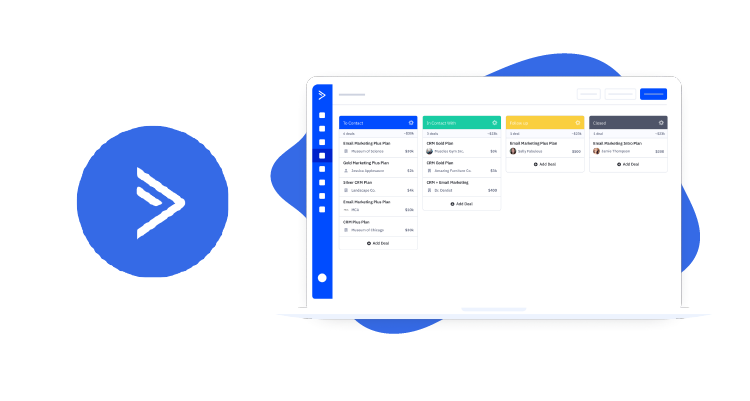
Imagine an attractive, easy-to-use platform entirely based on user experience—that’s ActiveCampaign’s marketing automation tool.
Besides being the recommended software for those starting automation activities, it has a standout feature: geographic marketing, which allows you to identify where the lead was when they received the email.
This means one more data point to analyze and evaluate campaign performance.
Other features include:
- Automating follow-up emails;
- Locating the most engaged contacts;
- Integrating with other tools;
- Segmenting leads;
- Personalizing content.
Here are the reviews:
- B2B Stack – 4.6 out of 5 stars;
- Capterra – 4.6 out of 5 stars;
- G2 – 4.6 out of 5 stars.
E-goi, the Best for Communication
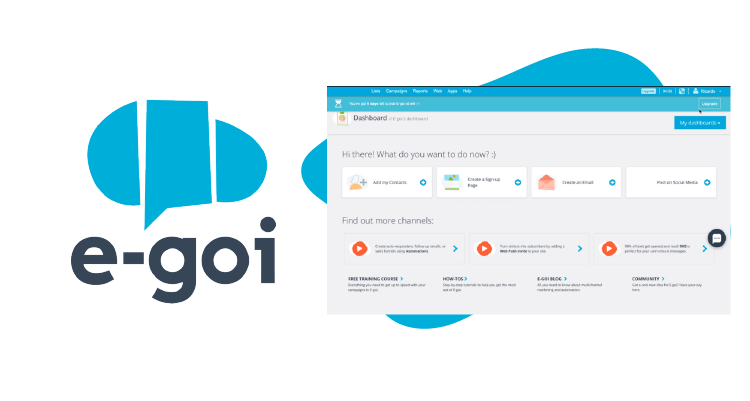
If you’re looking for a tool that offers communication through various channels, E-goi’s marketing automation software is for you.
With it, you’ll have access to communication channels like:
- Email marketing;
- SMS marketing;
- Web push notifications;
- Mobile push notifications;
- Voice calls;
- Transactional email and SMS;
- Own ads.
Additionally, its functionalities include lead generation and traffic, conversion, optimization, user relationships, and e-commerce.
Its market reviews are also positive:
- B2B Stack – 4.5 out of 5 stars;
- Capterra – 5 out of 5 stars;
- G2 – 4.4 out of 5 stars.
Mailbiz, the Best for Email Marketing
Mailbiz’s marketing automation tool is gaining recognition for its support, usability, quality, and functionality among customers.
The software offers:
- A/B testing;
- Email automation;
- Landing pages;
- Web forms;
- List management and segmentation;
- Reports;
- Free templates;
- Drag-and-drop editor.
Check out the reviews:
- B2B Stack – 4.9 out of 5 stars;
- Kmaleon – 98 out of 100.
Sharpspring, the Best for Agencies
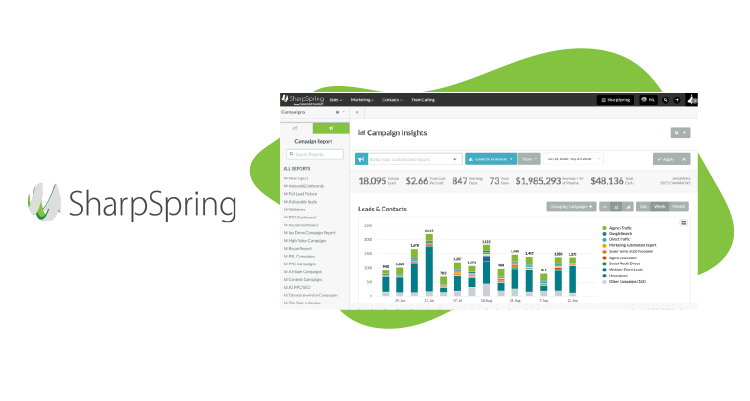
Present in over 1,600 agencies worldwide, Sharpspring offers a comprehensive tool with the following features:
- Proprietary CRM;
- Measurement of online and offline campaigns;
- Integration with Google Ads;
- Persona creation;
- Robust automation engine;
- Dynamic emails;
- Dynamic landing pages;
- Automated lead nurturing;
- Potential customer filtering – lead scoring.
Check out customer reviews:
- B2B Stack – 4.8 out of 5 stars;
- Kmaleon – 98 out of 100;
- Capterra – 4.6 out of 5 stars;
- G2 – 4.5 out of 5 stars.
Hubspot Marketing Hub, the Best for Content Marketing

In addition to being a reference in digital marketing, Hubspot created one of the most comprehensive marketing automation tools on the market, Hubspot Marketing Hub.
In addition to features such as:
- Landing Pages;
- Lead management;
- Email;
- Customer journey analysis;
- Social Media;
- Tracking ROI of your advertising;
- SEO;
- Blog.
Hubspot Marketing Hub also facilitates lead management, disseminates messages on social media, produces analyses, and its main point: transforms inactive leads into active ones.
Check out some market reviews:
- B2B Stack – 4.4 out of 5 stars;
- Kmaleon – 55.6 out of 100;
- Capterra – 4.5 out of 5 stars;
- G2 – 4.4 out of 5 stars.

Mailchimp, the Best for Automated Campaigns
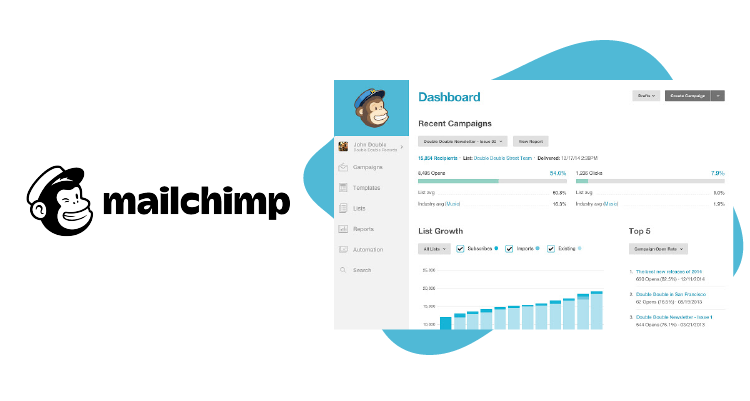
In addition to Mailchimp’s smart email marketing features, its other functionalities include:
- Integration with social media;
- Creating ads on Facebook, Instagram, and Google;
- Scheduling email dispatches;
- Monitoring campaigns;
- Contact segmentation.
Plans vary according to the number of contacts you have in your lead database. Visit the website to learn more.
Reviews:
- B2B Stack – 4.5 out of 5 stars;
- Kmaleon – 86.6 out of 100;
- Capterra – 4.5 out of 5 stars;
- G2 – 4.3 out of 5 stars.
Snov.io, the Best for Lead Generation
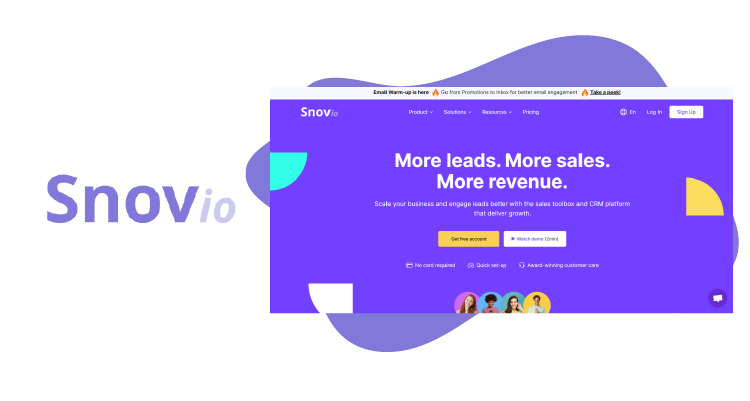
Snov.io’s marketing automation tool focuses on sales outreach, that is, the process of reaching leads and former clients through calls, emails, messages, and social media.
Some of its functions are:
- Email drip campaigns;
- Email verification;
- Tracking sent emails.
Don’t miss out on the top reviews:
- B2B Stack – 4.8 out of 5 stars;
- Capterra – 4.5 out of 5 stars;
- G2 – 4.5 out of 5 stars.
Salesforce Pardot, the Best for Increasing Your Revenue
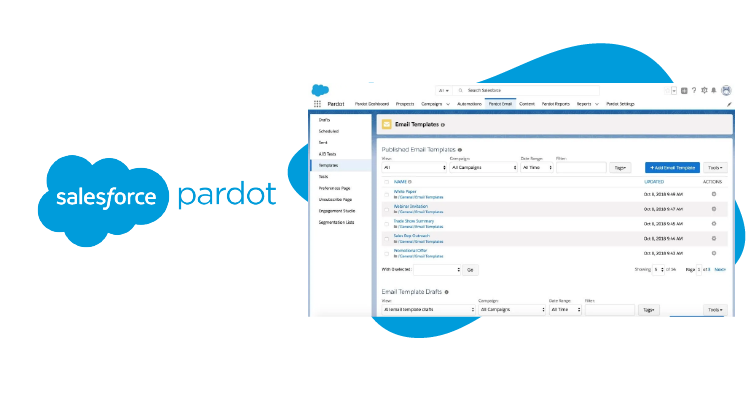
Salesforce Pardot’s marketing automation tool integrates CRM, email marketing, ROI reporting, and lead scoring.
The average price of the plans is $1,000 per month, including the following features:
- Tracking potential customers;
- Lead creation, scoring, and classification;
- Forms;
- Landing pages;
- A/B testing.
As you can see, Salesforce Pardot comes with a high price tag. But that’s natural given all it offers.
Salesforce Pardot’s job is to integrate marketing and sales, and it operates almost like a CRM + marketing platform at the same time.
That’s why its price is quite steep. It is recommended for more mature companies looking to invest heavily in inbound strategies.
Check the reviews:
- B2B Stack – 4.36 out of 5 stars;
- Capterra – 4.7 out of 5 stars;
- G2 – 3.9 out of 5 stars.
Brevo, Best for More Results with Less Difficulty
Recently, Sendinblue became Brevo, initially focusing on email marketing, specifically for sending newsletters.
However, over time, Sendinblue grew and became a true marketing platform. The name needed to change to reflect that.
Today, Brevo offers several interesting features for complete marketing automation. Here are a few:
- Email marketing;
- SMS marketing;
- Chat;
- CRM;
- Marketing automation;
- Transactional emails;
- Forms;
- Landing pages;
- Facebook ads;
- Retargeting.
Brevo offers 3 plans, besides the free one: Starter (R$ 40/month), Business (R$ 81/month), and Enterprise.
Some of its reviews are:
- Capterra – 4.6 out of 5 stars;
- G2 – 4.5 out of 5 stars.
13. SendPulse, Best for Engaging Leads
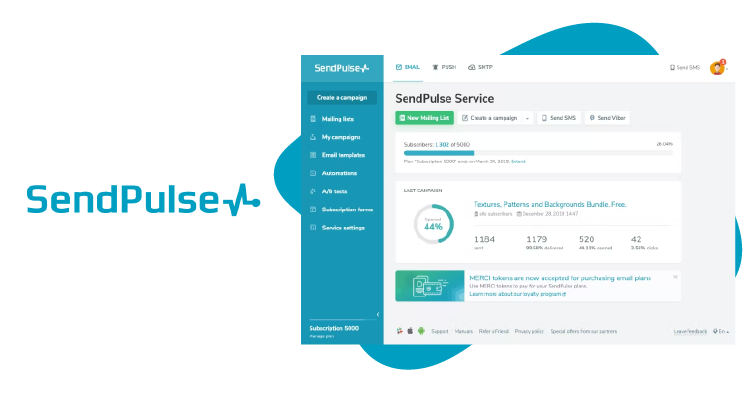
SendPulse stands out for focusing on lead engagement by humanizing processes and simplifying them.
- It does this through features like:
- Integrated CRM;
- Integration with sales tools;
- ROI measurement;
- Email marketing automation;
- Creation of landing pages.
This is the price for the annual subscription!
Its reviews in the market are:
- B2B Stack – 4.5 out of 5 stars;
- Capterra – 4.5 out of 5 stars;
- G2 – 4.5 out of 5 stars.
Keap for Small Businesses
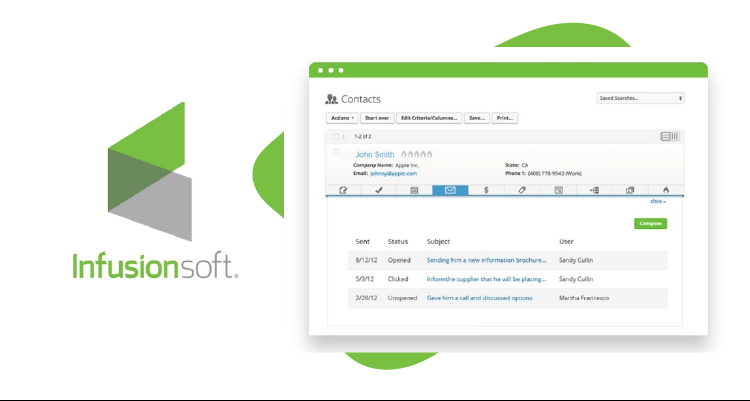
Infusionsoft changed and is now Keap.
Besides offering basic functions, the efficiency of Keap’s marketing automation tool is very high.
The software allows:
- Email scheduling and sending;
- Tracking user behavior;
- Creation and management of landing pages;
- Automated payment processing and management.
Its prices have increased significantly, which complicates its main purpose: working with small businesses.
Its reviews are:
- B2B Stack – 4.1 out of 5 stars;
- Capterra – 4.1 out of 5 stars.
Mautic, Best for Your Budget
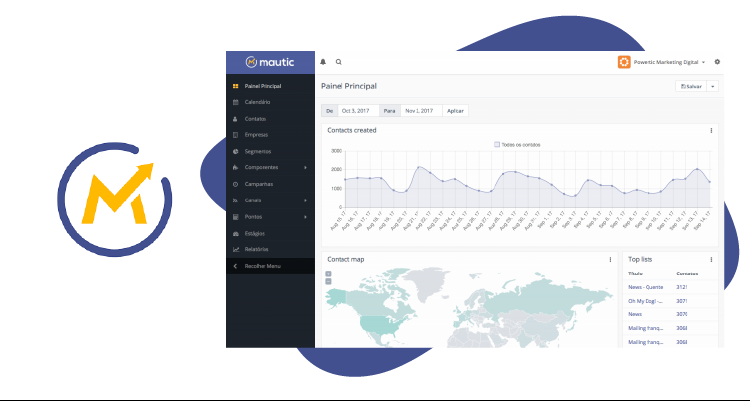
Mautic’s tool is open source, allowing users to make suggestions and improvements.
Its marketing automation includes the following features:
- Lead nurturing;
- Contact management;
- Marketing campaigns;
- Sequential email marketing;
- Social media monitoring;
- Landing pages;
- Sales funnel.
Some of its reviews in the market are:
- B2B Stack – 4.4 out of 5 stars;
- Kmaleon – 96.9 out of 100;
- Capterra – 4.3 out of 5 stars.
Marketo, Best for Nurturing Your Leads
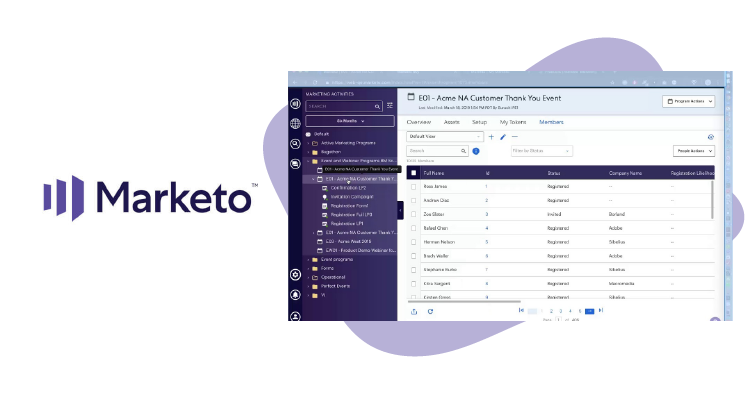
Marketo’s marketing automation software is cloud-based, aiming to build and maintain customer relationships.
Some of its features include:
- Lead management;
- Email marketing;
- Mobile marketing.
Marketo offers 4 plans: Jumpstart, Select, Prime, and Ultimate.
Here are some of its reviews in the market:
- Capterra – 4.2 out of 5 stars;
- G2 – 4.1 out of 5 stars.
Oracle Eloqua, Best for Personalization
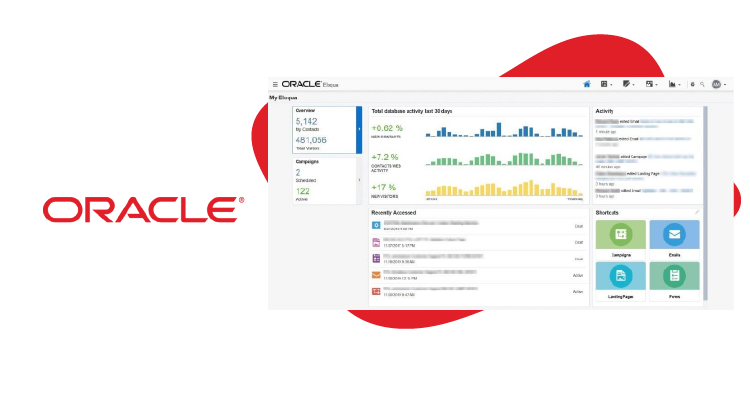
Oracle Eloqua’s automation tool allows your company to operate across multiple channels, with a high level of personalization.
Some of its features are:
- Lead generation;
- Lead management;
- Lead segmentation;
- Tracking reports and buyer surveys.
Its review on the G2 site is 3.9 out of 5 stars.
How to Identify Your Needs Before Choosing a Marketing Automation Tool?
Many people search for a marketing automation tool without having clearly defined processes that require such tools.
In other words, there is a need for a solution, but without analyzing other aspects of the company, the search for the ideal product is compromised.
Imagine: you sign up for one of these platforms, one that delivers simpler features, only to discover three months later that it doesn’t support email marketing.
You needed email marketing but didn’t know it yet. Now that you do, it’s too late. Another tool needs to be found.
To avoid this situation, here are three simple tips to help you audit your company’s marketing needs before making a decision.
We’ll go from basic to more advanced tips, following an order of complexity. Check them out:
Talk to the Entire Team
It’s very common for marketing automation tools to be implemented from the top down.
Suddenly, one day the team comes to work, and voila: a new system is in place.
This is quite problematic because the team can help you list the marketing needs the company currently has.
For example: the managers know that it’s necessary to catalog leads. But they may not know that the lead acquisition process is inadequate, driving the CRO down.
In this case, a marketing platform needs to have both cataloging and automation features, as well as lead generation features — chatbots, landing page builders, form builders, pop-ups, etc.
So, before making your decision, always consult your team. This is a crucial step in ensuring you’re making the best decision for everyone.
Take a Month Just for Testing
Many of the tools we’ve mentioned offer free trials for a period.
But the ideal is to conduct several tests, on several tools, preferably all at once.
Make a list of the platforms that interested you the most and take a month just to decide which one is best.
This ensures that all platforms are tested thoroughly and in real-use scenarios.
Also, involve the whole team in these tests, and at the end of the month, hold a big meeting to determine the favorite.
But here’s something important: the favorite isn’t necessarily the marketing automation platform you’re going to choose!
In fact, there are a few other factors that will help you close the deal. Let’s go over those now:
Do a Technical and Economic Benchmark
Time for a spreadsheet!
Choosing a marketing automation tool is tricky because the range of features they offer is pretty narrow.
Most platforms offer almost the same thing, with a few basic differences — one or two unique features, a contact limit, etc.
Create a spreadsheet and use the columns to list all the features your brand needs.
And for the rows, use the products you’re evaluating. Add the performance of each one, all its features, etc., for comparison.
And voilà! Now you have a document that determines the relevance of each of these tools for your marketing strategy.
So, do you already know which tool fits your company best?
Take the opportunity to learn more about other tools that will help improve your business results. Check out more articles on chatbots and CRMs, and make your brand a market leader.




